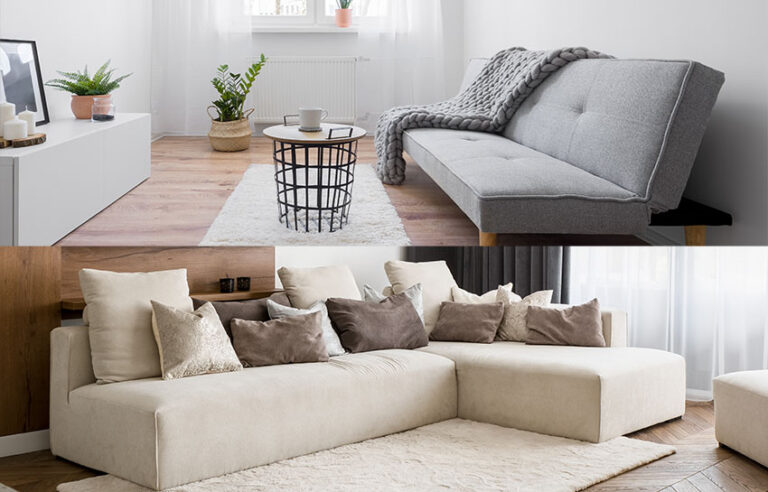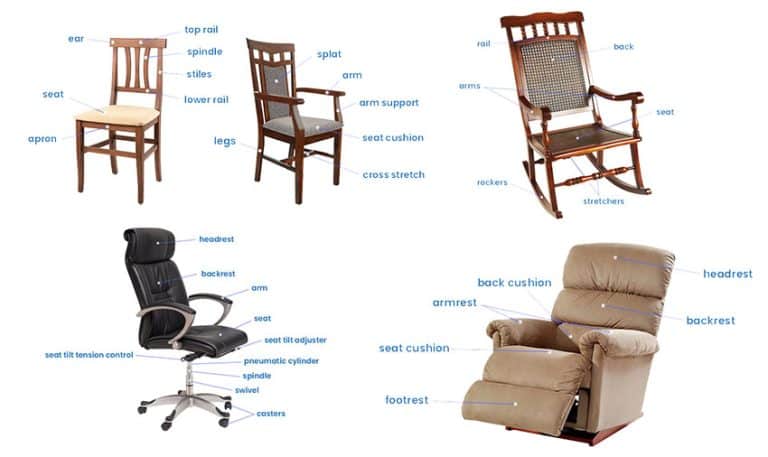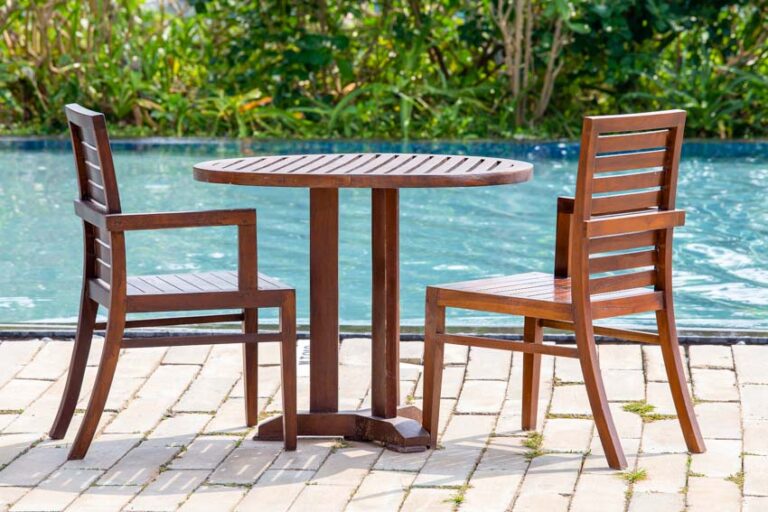Polyester Couch Pros and Cons
Here’s our polyester couch pros and cons guide, including what it is, different types, and whether it’s a good choice for your home’s living room design.

Polyester couches are a popular furniture option for your home. They can be found with 100% polyester fabric or blended with other materials to create a durable and affordable sofa.
What is a Polyester Fabric Couch?
First introduced in the 1950s, polyester is a high-performance synthetic microfiber used as an upholstery fabric, often used with natural materials such as cotton and wool. Technological advances have improved the feel, drape, and look, and today, it can feel and look like real silk and wool.
Polyester is one of the most inexpensive fabric textiles, often blended with other fibers in order to create an upholstery resistant to wrinkling, crushing, and fading. It is also useful as an outdoor fabric and a comfortable material for sofa and slipcovers. See more types of couch fabrics here.
Polyester Sofa Pros
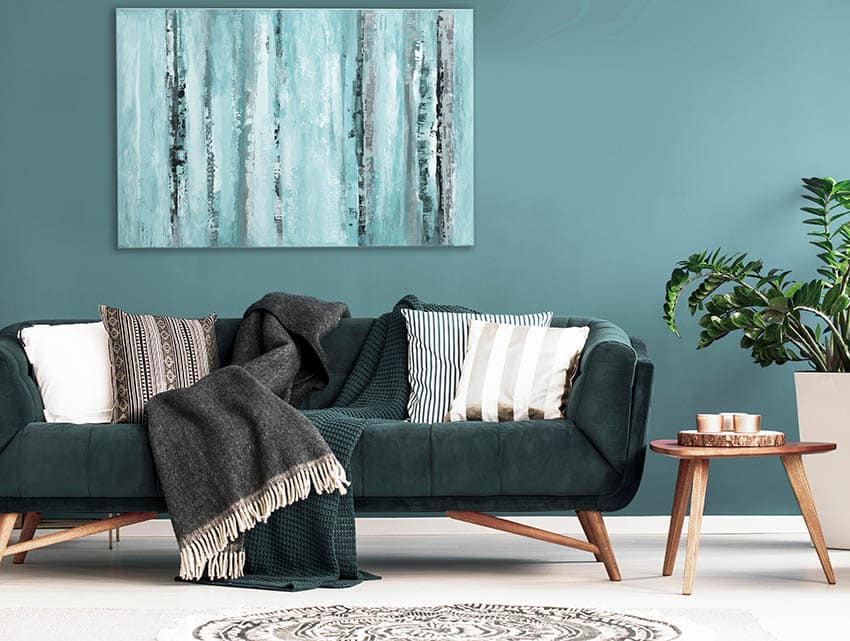
Price – A polyester couch is at a very affordable price compared to other natural fabric couches because it is cheaper to produce. Polyester blended with cotton is cheaper than 100% cotton fabric.
Durability – This material is very soft, comfortable, and extremely easy to clean. It also has an abrasion-resistant quality, which makes it durable. It can resist more damage than natural materials.
Although it may not stop all the damage your pets can cause, it will resist the impact of their claws and bites better than those of the natural fibers. The surface is resistant to stretching and shrinking when washed.
Resists fading – It can withstand discoloration and resist fading issues from sunshine or artificial light exposure.
Stain resistant – The fabric will resist most stains better than natural materials since it dries quickly in case of spills.
Breathability – The fabric will not absorb smells and prevent sweat accumulation because of its more breathable quality.
Polyester allows moisture to be drawn off the surface and evaporate almost instantly. By combining cotton with the fabric, you get a softer feel and a more robust weave while remaining breathable.
Non-allergenic material – This couch is naturally hypo-allergenic. There is a lower risk of allergy development in these couches than using natural materials such as wool and cotton, which create the most trigger.
Natural materials have allergens that can be found in them, such as pollens that can settle into the upholstery fibers. Polyester, on the other hand, has fewer sediment issues because it has a tighter weave.
Other Pros
Another good characteristic of polyester is that it can be blended with other fibers to get the benefits of both natural and synthetic blended fabrics. When shopping for a couch nowadays, there are quite a lot of blending options to choose from, such as silk, wool, or rayon.
These couches can replicate the look and feel of leather without the price tag. You can be assured that it will be durable; it is also available in rich earth tones similar to leather, and the couch has fewer maintenance issues than leather. See more couch color options on this page.
There is more resilience in the polyester’s fabric construction, which means you can avoid the saggy look that is evident in couches made of cotton or wool upholstery. This material can also keep its shape better.
A polyester fabric couch often comes with a “W” symbol, which can be found on its manufacturer’s tag; this means that you can easily clean and maintain your couch upholstery with water without ruining its weave.
Polyester Sofa Cons
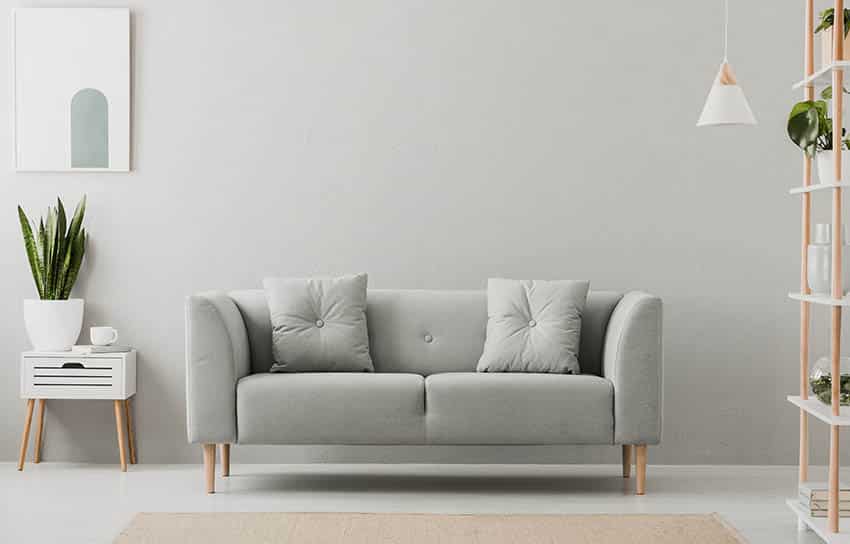
Oil staining – This couch offers poor resistance to greasy food stains and oil contacts. Even the oils from your skin can leave permanent stains on the couch – oily hands and feet are top on the list.
Runs and pulling – Cheap upholstery can have runs and pulling problems when exposed to consistent abrasion. The fibers come loose from their weave, creating an unsightly look for your furniture.
Natural fibers have their share of runs and pulling as much as synthetic fibers, but polyester tends to experience more damage over time.
Static – As a synthetic type of upholstery fabric, a certain amount of static electricity is maintained in these couches. This static charge will build up over time and will always have the risk of some sort of a “shocking” experience.
Avoiding conductive items near and around these couches can further reduce the risk. Maintaining an appropriate level of humidity in the home can temper this disadvantage. Wearing rubber-soled shoes or slippers while sitting or relaxing on your couch can also help reduce the risk.
Due to the static electricity generated by these couches will attract numerous particles, pet hairs, and lint on your clothes. These particles can be embedded in the weave of the upholstery, which can become a problem when cleaning the couch.
Temperature sensitive – Since the material consists of synthetic fibers, it is vulnerable to heat. Its heat level of tolerance is not at the same level as that of the natural materials.
When used as upholstery on couches, polyester fabrics could singe, burn, and then melt once exposed to any heat sources or hot substance poured into the upholstery.
Other Cons
A polyester couch is prone to stretch over time due because polyesters are tensile. When exposed to high pressure, the skin of the fabric peels off from the back material, causing a delaminating effect. Also, if exposed to varying temperatures, the fabric may crack.
Is Polyester Good for a Couch?
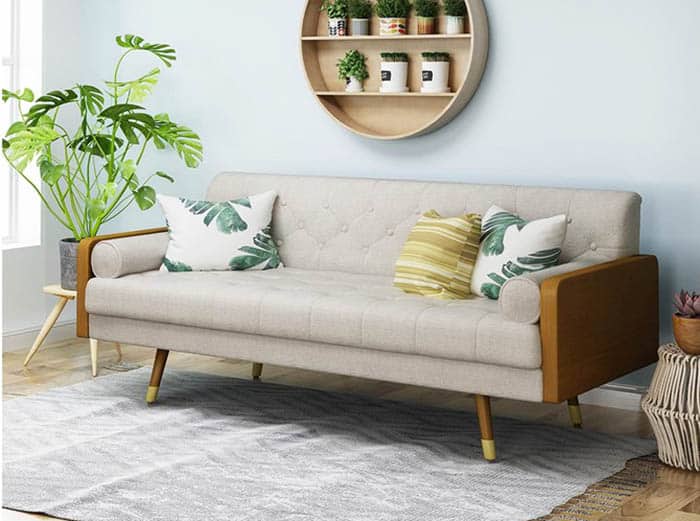
As mentioned above, polyester offers several advantages as an upholstery fabric, such as its strength to withstand sun exposure and daily use. It remains colorfast and resistant to water-based stains.
In terms of resilience, it holds its shape better than cotton upholstery fabrics, preventing the saggy look often observed in couches as they age.
Although it is vulnerable to excess heat or burns, these couches are very durable, comfortable, soft, and have lightweight fibers. Synthetic fabrics such as this are less expensive and very easy to clean.
With its current development and ongoing improvements, its fabric has become a very eco-friendly substrate. It has become a popular choice of couches due to its high performance as an upholstery fabric.
Polyester can be reprocessed to form new fibers; its fibers, yarn, and fabric can be recycled. Unlike pure plastic materials, polyester does decompose; although it takes time they do so eventually.
And so, if you are looking for a reasonable couch at an affordable price, then a polyester couch is an excellent choice for your home.
Is 100% Polyester Good for a Sofa?
As someone who has owned both higher-quality and lower-quality polyester couches, I can attest that you usually get what you pay for when it comes to the material.
I have had to replace the inexpensive polyester sofa I bought within two years due to intense amounts of piling that I just couldn’t stand looking at anymore. Sure, you can use a fabric shaver to tend to the loose strands, but this can be time-consuming. I didn’t notice the same problems on my more expensive sofa, even with more use.
Usually, high-quality 100 percent polyester fabrics will not pill, will not stretch, and is resistant to stains, mildew, fungi, and even bugs. When used on a couch or sofa, 100% polyester it can provide a highly durable comfort experience.
Microfiber is 100 percent polyester with multi-weave fabric comprised of ultra-thin fibers and a fuzzy suede pile that mimics suede. It has a surface abrasion treatment that makes it an excellent choice for heavy-use sofas. Microfiber has a good reputation in terms of easy maintenance and cleaning and is a great choice for a sofa if you have kids and pets.
In all of the engineered fabrics, 100% polyester is one of the most durable sofa fabrics available in the market. This material can mimic most fabrics; it is resistant to stains and liquid because of its ultra-fine fibers that are tightly woven.
Polyester is a great fabric choice for upholstery used in sofas and other furniture, even due to its synthetic nature compared to its natural counterparts, since it has many advantages.
The material is a great, affordable upholstery fabric that can last long, whether used for indoor or outdoor furniture. Its fabric has a personality of its own; its texture has a nice feel. We strongly recommend you consider buying furniture with high-quality polyester upholstery fabric for your home.
For more related content, visit our gallery of different types of sofa styles.



